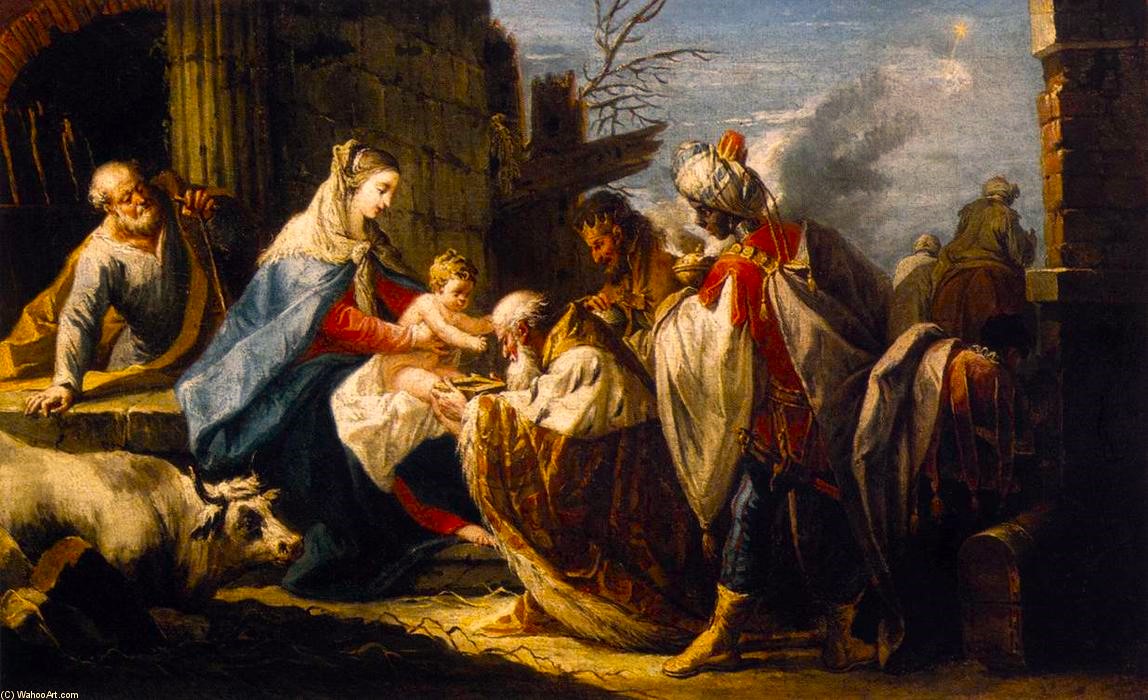The Sunday Sermonette: The Magi, the Manger and You.

“Only one dollar and eighty-seven cents. That was all. And sixty cents of it was in pennies. Pennies saved one and two at a time… Three times, Della counted it. One dollar and eighty-seven cents. And the next day would be Christmas.” This is how O. Henry opens his famous 1905 short story, “The Gift of the Magi.” I first read it in Mrs. Faye McCloud’s 9th-grade English class, and its story of sacrificial love still charms me.
You remember the story, don’t you? Tall, dark, handsome Jim and Della, his exquisite bride, were a young couple barely making ends meet while living in a cold-water flat in New York’s impoverished Lower East Side. It was Christmas time, and they worried there would be no money to buy each other a present. So they each made a momentous decision. Della sold the luminously long hair that she treasured. Jim sold his beloved heirloom watch.
When he came home on that cold, snowy Christmas Eve, Jim showed Della the magnificent hair combs he had purchased for her, revealing that he had sold his watch to buy the combs. Sheepishly, she showed him the lovely watch chain she bought him using the money she received for her hair. With a look of loving surprise, they realized their respective sacrifices rendered their gifts useless.
In the story, however, Jim and Della maintain their good sense of humor and decide to save their fine gifts for a later time. While their gifts could not be used right then, they knew the sacrifices each had made would cement their love for years to come, proving to them how precious their love truly was. The story ends with O. Henry comparing their sacrificial gifts of love with those of the Magi.
As a child, I was fascinated by the story of the Magi, although very little is known about them. The Bible tells us they were from “the East,” most likely Persia or modern-day Iran. This means they traveled over 800 miles to see the Christ child. Most likely, they were aware of the Old Testament, prophetic writings of Daniel, who had been the Chief of the Court Prophets in Persia. In his writings, he gave a timeline for the birth of Jesus. The Magi sacrificed time, money, and safety to come and worship the baby Jesus. But they were not the only ones who made sacrifices.
Joseph sacrificed his livelihood as a carpenter to save his precious family—Mary and the Baby Jesus—from the evil wrath of King Herod and escaped to Egypt. Mary sacrificed much of her early life to care for Jesus and rear him in the Jewish faith. Others that Holy Night, the shepherds, sacrificed protecting their flocks from wild animals when they went to see what the Angels had proclaimed to them on that starry, starry night.
However, these sacrifices pale compared to the two most significant sacrifices in human history—those of Father God and Jesus. God, in His love for a sinful, dying world, sacrificed His only begotten son, Jesus, who, in return, sacrificed His life as a ransom for ours.
This Christmas Season, when you see a manger scene, please remember the sacrifices made by each one represented. And then ask yourself, “What have I sacrificed for those I love?”
Ponder this and go forth.
